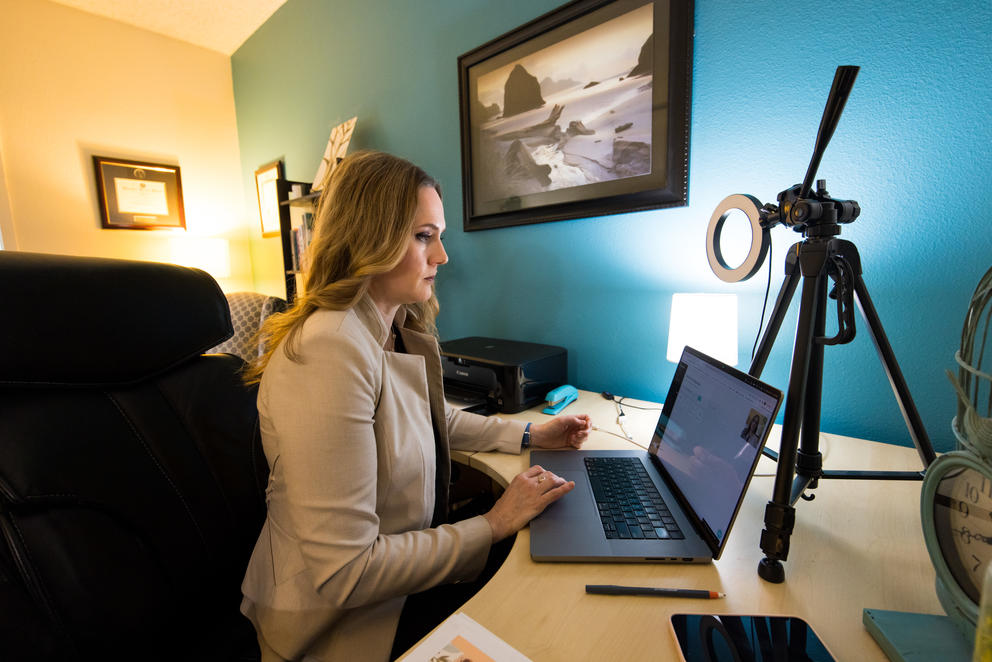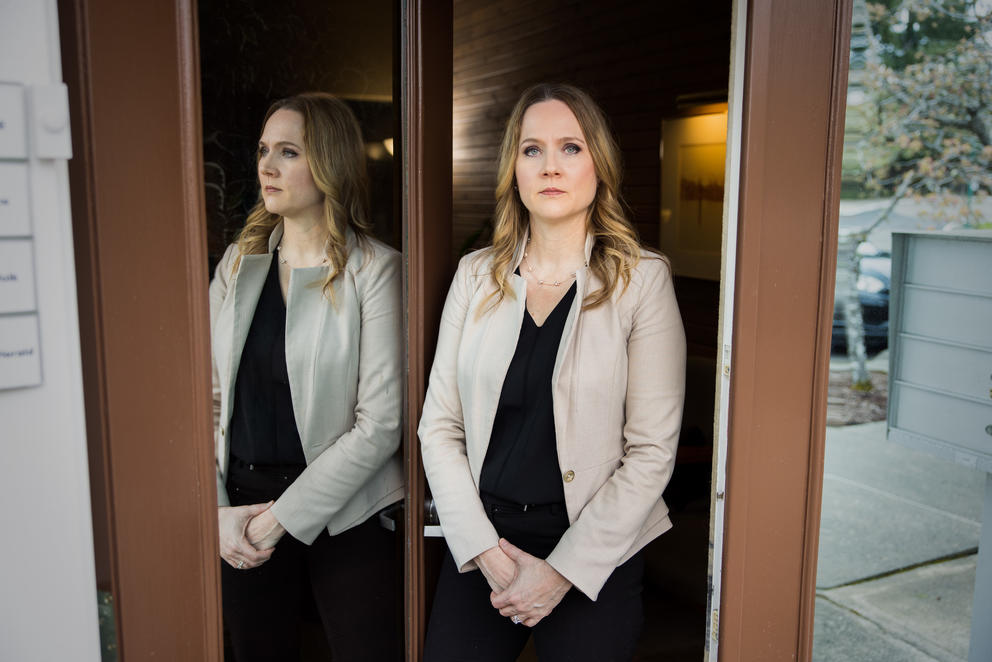As of June 8, both the website and phone line for Synergia, a company owned and operated by Philip Hirsch, stated that the business was closed — “permanently,” according to a voicemail greeting. The closure comes a month after 10 of Hirsch’s former workers shared their stories with InvestigateWest in an article that showed how the psychologist was able to weather lawsuits, bankruptcy and a suspended license to build a reputation as a trusted telehealth expert.
InvestigateWest (invw.org) is an independent news nonprofit dedicated to investigative journalism in the Pacific Northwest.
Since that report, InvestigateWest has heard from five additional Synergia workers who all said they hadn’t been paid for their labor. Another client said Synergia had attempted to bill her credit card for nearly $540 in unexplained charges.
Sara Weelborg, a nurse practitioner who has led the charge to alert prospective workers, insurance companies and state and federal regulators about Hirsch’s track record, expressed cautious optimism about the closure of Synergia.
“I hope it means [Hirsch] has abandoned the idea of running his scams, and doesn’t mean he is just going to close this company and start a new one,” Weelborg told InvestigateWest by text message. “I also feel relieved that it is shut down because perhaps that means I can focus my time and energy into providing real integrated care for legitimate companies … instead of spending time on warning people about him.”
Hirsch, 72, of Shoreline, did not respond to interview requests for this story.
With Synergia now closed, former workers are seeking to hold Hirsch accountable for the tens of thousands of dollars they say he stole. Despite the growing roster of affected practitioners and patients, most said they had hit roadblocks while seeking help from state and local officials.
Their plight exposes a gap in state protections for independent contractors, one that could be at least partially fixed, according to Seattle city officials, by following steps the city took in 2021 when it established an independent contractor protection ordinance.
“I think there needs to be a mechanism for accountability,” said Michele Peyton, a licensed clinical social worker who worked for Synergia from July through December 2020. “We should have a clear, defined path to take when somebody violates their contract with us, because there is none. It’s very discouraging.”
At least one state lawmaker supports their efforts. Rep. Dan Bronoske, D-Lakewood, who met with Weelborg earlier this month, said he’s committed to exploring solutions.
“I’m frustrated that this took place,” Bronoske said. “There’s got to be something out there we can do.”
Closed doors
In the weeks since InvestigateWest’s May 8 report, several former Synergia contractors and patients trying to get help from different local, state and federal agencies have made little headway.
Two patients who allege Synergia made unauthorized charges to their debit and credit cards have contacted local sheriff’s offices, both in the counties where they live and the county where Hirsch lives. One was told to file a complaint with the FBI, which investigates cybercrime, but she hasn’t heard back yet.
Weelborg also filed a complaint with the FBI. She and Peyton both appealed to the Consumer Protection Division of the Washington Attorney General’s Office, but were told the division could not resolve their complaints.
The Attorney General’s Office has prosecuted business owners over wage theft before. In January 2022, for example, the office issued a press release about two Auburn business owners who pleaded guilty to felony theft for withholding $33,000 in wages from more than 24 employees. The Attorney General’s Office said it accepted that case after a referral from the King County Prosecuting Attorney.
Based on the estimates that Synergia workers provided, they have been shorted more than double the amount of that case: at least $78,000.
Police in University Place, where Weelborg lives, told her that her issue was not criminal and she could file a lawsuit, which she has, in small claims court. She hasn’t heard back about her FBI complaint or a complaint she filed with the Federal Trade Commission on March 8 alleging deceptive practices.
No worker said they had gone to the Washington Department of Labor and Industries, which told InvestigateWest in May that two previous complaints about Synergia had led to no action. In those earlier cases, one worker withdrew their complaint and the other was ineligible for wage theft protection as an independent contractor.
Labor and Industries officials declined an interview request for this story.
A possible remedy
Since meeting with Weelborg on June 2, Bronoske, the state representative, said he has been familiarizing himself with existing laws around independent contractors and looking for a way to help.
One place he has looked to is Seattle, where a local ordinance requires greater pay transparency from people hiring independent contractors than state statutes require. The Seattle ordinance also provides opportunities for contractors to pursue wage theft complaints.
In instances where unclear contract language leads to disputes, the ordinance also puts the burden on the business to prove why it is not liable to pay, according to city officials.
The Seattle City Council passed the ordinance in 2021. Councilmember Lisa Herbold, who introduced the bill, said it was meant to address a gap in state and local laws that left these workers vulnerable.
“Contract workers not working for big platforms don’t have worker advocacy or labor unions to support them — they are largely unaffiliated without anyone to help them,” Herbold said via email. “They had no wage theft protections before passage of the independent contractor law.”
Seattle independent contractors can file wage theft complaints with the city’s Office of Labor Standards. The office may then investigate and, if a violation is found, pursue unpaid wages on behalf of the contractor, along with additional fines and interest.
If needed, that office can ask the city attorney to seek subpoenas for the business’s financial records or a court order to compel the business to pay up.
Steven Marchese, director of Seattle’s Office of Labor Standards, said the ordinance “absolutely” would have provided additional protections for any Synergia workers who were city residents. However, none of the workers who spoke with InvestigateWest live in Seattle.
“The statute is there to encourage positive behavior,” Marchese said. “We want people to comply, and so these other provisions [of investigation and enforcement] are there to penalize the bad behavior so that it’s not treated like just the cost of doing business."
InvestigateWest (invw.org) is an independent news nonprofit dedicated to investigative journalism in the Pacific Northwest. Reach reporter Kaylee Tornay at kaylee@invw.org.





